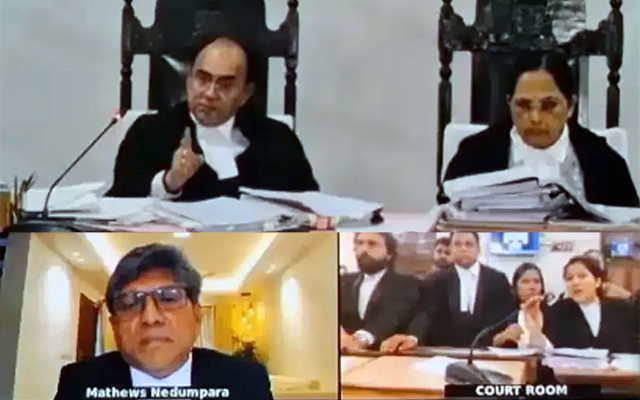
Where is the line between respect for the court and the dignity of an advocate?

Ukrainian advocates sometimes complain about condescending attitudes or tactless remarks from judges. But such conflicts are not unique to Ukraine. In various countries, advocates raise issues of communication culture in court, mutual respect, and the inadmissibility of humiliating participants.
The latest discussion about hierarchy in the judicial system and professional equality was sparked by a case in India.
According to the local legal media outlet LawBeat, a panel of judges at the Bombay High Court was hearing a commercial dispute, with two advocates representing one of the parties. Young lawyer Maria Nedumpar was present in the courtroom, while her supervisor had to participate remotely due to medical treatment.
Despite repeated requests, the court refused to turn on the latter's microphone, effectively depriving him of the opportunity to speak.
The chairman of the case, Shyama Suman, stated that he had insulted the court, but did not specify what the insult was. Nedumpar tried to explain the situation and even apologized for the misunderstanding. But the judge, according to her, reacted aggressively, threatening to have her removed from the courtroom.
«I was shocked and deeply offended by the way the honorable judge addressed me, gesturing to the security guards to remove me. I felt stripped of all dignity — as a lawyer and as a woman», - the young advocate commented on the situation.
After the incident, she appealed to the Supreme Court of India and the chairman of the Bombay High Court with a complaint about S. Sumani's actions. The advocate emphasized that her tone and behavior during the hearing remained restrained and respectful, and her only goal was to clarify the circumstances of her senior colleague's allegedly offensive actions.
Nedumpar pointed out that while advocates are required to strictly adhere to rules of conduct in court, judges themselves do not bear similar responsibility for their own manner of communication. She warned that such behavior undermines the dignity of the legal profession and the authority of the judicial system.
She added that this case is not an isolated one, but indicative of a broader problem where young advocates and vulnerable parties to proceedings often face humiliation or disrespect in court.
She also mentioned the existing informal requirements for behavior in the courtroom — for example, the need to change one's posture or body position so as not to cause dissatisfaction on the part of the judge — arguing that such practices foster a culture of subordination rather than professionalism.
The advocate presented her complaint as a call for institutional self-analysis and reform of the system, emphasizing that young advocates, regardless of their experience or status, deserve to be treated with dignity. «Even the weakest, most insignificant participant in the process has the right to respect. Anything less undermines the authority of the judicial system itself», - she stressed.
The problem raised can be considered a consequence of the hierarchical culture inherent in the judicial systems of many countries with a post-colonial or authoritarian past. In such systems, judges are perceived as figures of unquestionable authority, while young advocates, parties representing themselves, representatives of minorities or socially vulnerable groups are seen as subordinates who must show obedience. The lack of effective mechanisms to respond to inappropriate behavior by judges only exacerbates this imbalance.
© 2026 Unba.org.ua Всі права захищені
"Національна Асоціація Адвокатів України". Передрук та інше використання матеріалів, що розміщені на даному веб-сайті дозволяється за умови посилання на джерело. Інтернет-видання та засоби масової інформації можуть використовувати матеріали сайту, розміщувати відео з офіційного веб-сайту Національної Асоціації Адвокатів України на власних веб-сторінках, за умови гіперпосилання на офіційний веб-сайт Національної Асоціації Адвокатів України. Заборонено передрук та використання матеріалів, у яких міститься посилання на інші інтернет-видання та засоби масової інформації. Матеріали позначені міткою "Реклама", публікуються на правах реклами.